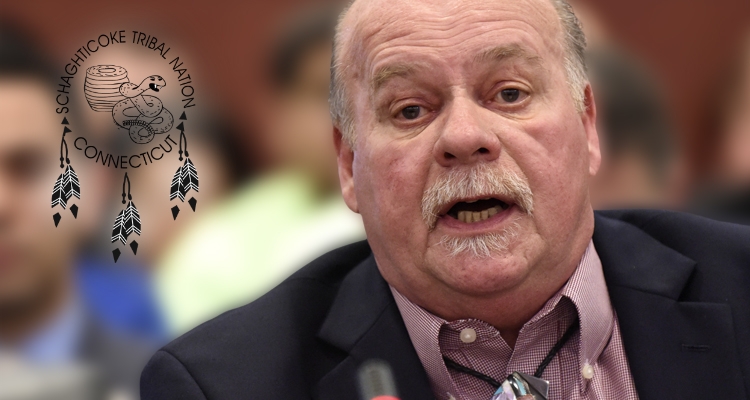Connecticut is now looking at three alternatives for another casino in the state and the final decision will not come easily or without consequences. Two of the bills would allow a competitive process and one simply allows lawmakers to extend the opportunity to existing gambling providers, currently operating as tribal casinos under compact agreements that pay the state about a quarter of a billion dollars a year in slot revenues.
The Finance committee is considering a bill to open the bidding process to a commercial interest, but that interest has allied with a Connecticut tribe to bolster their chances or to help the little guy, depending on your perspective. The Schaghticoke Tribal Nation has been fighting for their rights to open a casino for more than a decade and a half.
The Schaghticokes, in concert with MGM Resorts International, have presented figures that paint a picture of five times greater revenue going to the state compared to a casino planned for East Windsor by the Mashantucket Pequot and Mohegan tribes who currently run Foxwoods and Mohegan Sun.
The numbers game in CT is no less complicated than the one in neighboring Massachusetts where a similar, but different scenario presents itself to regulators and that casino’s future is under siege from commercial interests as well.
In Connecticut, the two former rival tribes have decided that placing a casino less than 15 miles from MGM’s upcoming Springfield, MA casino would keep money and potential footfalls from crossing the border, while detractors say that creating a new casino in southwestern Connecticut would draw gambling dollars from New York, creating a new influx of revenues.
However. a seven-year moratorium placed on one of New York’s yet to be tendered Las Vegas style casino licenses expires in a few years and any projected numbers that leave NY out of the equation are less than comprehensive.
Gaming expert Dr. Clyde Barrow, retained by Foxwoods and Mohegan operators, warns that deciders may not be looking at the full picture when comparing numbers, and foresees troubled times for any southern casino.
“It’s going to end up as the Trump Taj Mahal of Connecticut,” he warned. “It’s going to be filing for bankruptcy within 30 days.”
MGM Resorts International, who is behind the bid to build a commercial casino in the state, maintains that Connecticut will leave a lot of money on the table if the state doesn’t go through a competitive bid process.
“If you’re going to make the policy decision to have a third casino, you should do it in a way that maximizes jobs, that maximizes economic benefit to the state,” said Uri Clinton, MGM legal counsel.
“In a competitive environment, people put their best foot forward. The development agreement negotiated between East Windsor and the tribes guarantees a pitiful number of jobs.”
Any bill that makes it out of Hartford will likely face litigation unless a magic mix is created between the world’s second largest casino owner, by revenue, and the two tribes that the state currently relies on for substantial revenue. And then, there is the Schaghticoke question, which some analysts answer with the possibility of letting them open their own tribal casino in the southwest.



